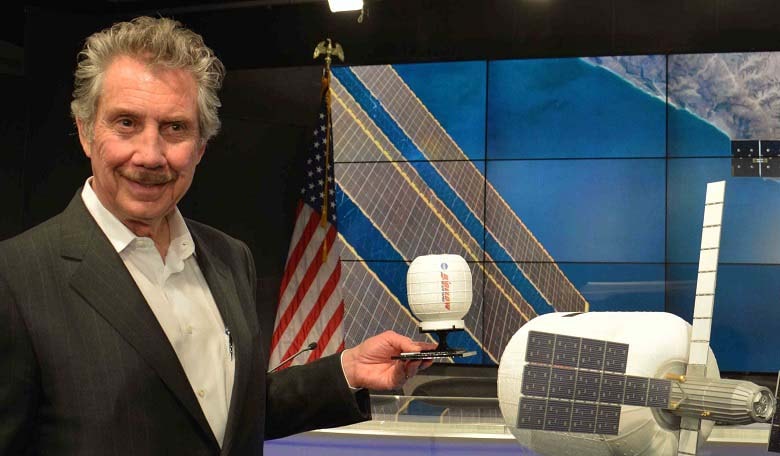United Launch Alliance (ULA) Atlas V rockets will launch the first of Bigelow Aerospace’s giant expandable B330 modules - each of which will provide one-third as much usable volume as the entire International Space Station (ISS) - representatives from both companies announced today (April 11).
The two aerospace companies are teaming up to launch the giant space habitats to orbit with the first targeted for 2020 in an agreement which marks the first commercial partnership between a launch provider and a space-habitat provider.
The goal is to launch the first of two B330s in 2020 and ideally that would be attached to the International Space Station (ISS), which would require NASA's approval, said Bigelow Aerospace founder and president Robert Bigelow.
"Each B330 is able to be its own space station," Bigelow said during a press briefing today at the 32nd Space Symposium in Colorado Springs, Colorado. "They need no other habitats, modules or anything of the sort."
The first orbiting B330, named because it contains 330 cubic metres of internal volume, could accommodate a variety of scientific experiments and house visiting space tourists, according to Bigelow. "We're offering discrete quantities of time from one or two weeks up to 45 days for various kinds of clientele,” he explained.
Bigelow and ULA president and CEO Tory Bruno describe their companies' partnership as a watershed moment for the exploration and exploitation of space.
"We are standing on the very threshold of an expanded and permanent human presence beyond our planet," Bruno said at today's briefing. "This is a very bright future, and you and I right now are standing here, looking right into it."
Bigelow has already flown three expandable modules in space - the free-flying Genesis 1 and Genesis 2 prototypes, which launched in 2006 and 2007, and the Bigelow Expandable Activity Module (BEAM), which has just arrived at the ISS aboard SpaceX's Dragon cargo capsule.
The goal of BEAM - which offers just five per cent the volume of a B330 - is to prove and expandable technology for human use on orbit. It will stay attached to the ISS for the next two years.
ROOM is a media partner for the 32nd Space Symposium in Colorado Springs.










